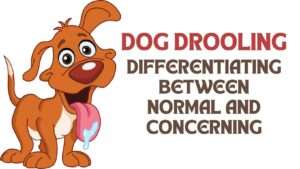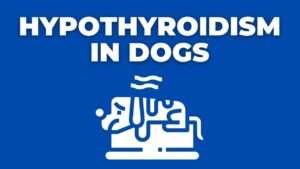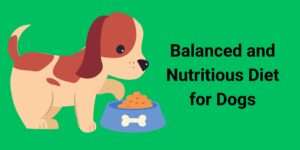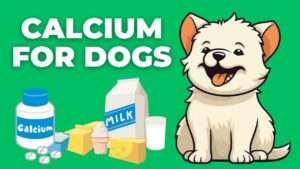Oatmeal, with its hearty texture and comforting warmth, is a beloved breakfast staple enjoyed by many.
But can our furry friends also partake in this nutritious grain?
In this exploration, we’ll delve into the world of oatmeal, examining its nutritional benefits, potential risks, and safe serving methods for our canine companions.
Contents Overview
What is Oatmeal
Oatmeal is a popular breakfast food made from ground oats, typically boiled in water or milk to create a hearty porridge.
It’s rich in nutrients like fiber, protein, and various vitamins and minerals, making it a nutritious choice for humans.
The Nutritional Value of Oatmeal
Oatmeal offers several nutritional benefits for both humans and dogs:
- Dietary Fiber: Oatmeal is a rich source of dietary fiber, which aids in digestion, regulates bowel movements, and promotes gastrointestinal health in dogs.
- Protein: Oatmeal contains protein, which is essential for muscle growth, repair, and overall health in dogs.
- Complex Carbohydrates: Oatmeal provides complex carbohydrates that offer sustained energy, making it an excellent option for active dogs.
- Vitamins and Minerals: Oatmeal contains essential vitamins and minerals, including iron, magnesium, and B vitamins, which support various bodily functions and promote overall wellness.
Can Dogs Safely Eat Oatmeal?
Yes, dogs can safely eat oatmeal in moderation. Oatmeal is gentle on their digestive systems and provides a range of health benefits.
It’s a good source of fiber, which can aid in digestion and regulate bowel movements for dogs with sensitive stomachs.
Additionally, oatmeal contains nutrients like iron and B vitamins, contributing to overall canine health.
However, it’s essential to serve oatmeal plain and cooked, without added sugars, flavors, or toppings like raisins, as these can be harmful to dogs.
Potential Benefits of Oatmeal to Dogs
Incorporating oatmeal into your dog’s diet can offer several potential benefits:
1- Digestive Health
The fiber content in oatmeal can promote digestive health by regulating bowel movements and preventing constipation.
It may alleviate gastrointestinal issues such as diarrhea by absorbing excess water in the digestive tract.
2- Weight Management
Oatmeal is a low-fat and low-calorie food, making it suitable for dogs on weight management or weight loss diets.
Its fiber content helps dogs feel full, reducing the likelihood of overeating.
3- Skin and Coat Health
Oatmeal contains linoleic acid, which supports a healthy skin barrier and promotes a shiny coat.
It can soothe itching and irritation associated with skin conditions like allergies or dryness.
4- Energy Boost
The carbohydrates in oatmeal provide a steady source of energy for dogs, making it an excellent option for active pups or working dogs.
Potential Risks and Precautions of Feeding Oatmeal to Dogs
While oatmeal can offer several benefits to dogs, it’s essential to be aware of potential risks and take necessary precautions to ensure your furry friend’s well-being.
Understanding the possible drawbacks of feeding oatmeal to dogs can help you make informed decisions about their diet.
Let’s explore some potential risks and precautions associated with feeding oatmeal to dogs.
Allergic Reactions:
- Risk: Some dogs may be allergic to oats or gluten found in oatmeal, leading to allergic reactions such as itching, skin rashes, or digestive issues.
- Precaution: Monitor your dog closely after introducing oatmeal into their diet. If you notice any signs of allergic reactions, discontinue feeding oatmeal and consult your veterinarian for alternative options.
Digestive Upset:
- Risk: Oatmeal contains fiber, which, when consumed in large amounts or introduced too quickly, can cause digestive upset such as gas, vomiting, or diarrhea in some dogs.
- Precaution: Gradually introduce oatmeal into your dog’s diet and monitor their bowel movements and overall digestive health. Adjust the serving size as needed to prevent digestive issues.
Obesity Risk:
- Risk: While oatmeal is low in fat and calories, excessive consumption can contribute to weight gain in dogs, especially if it’s served with high-calorie toppings or mixed with other calorie-dense ingredients.
- Precaution: Serve oatmeal in moderation and consider your dog’s overall calorie intake from treats and meals. Avoid adding sugary or high-fat toppings and opt for plain, cooked oatmeal instead.
Dental Health Concerns:
- Risk: Oatmeal, especially if served in a sticky or thick consistency, can adhere to your dog’s teeth and contribute to dental plaque and tartar buildup, potentially leading to dental issues like tooth decay or gum disease.
- Precaution: Offer oatmeal in a slightly diluted or thinner consistency to reduce its adherence to teeth. Ensure regular dental care, including brushing your dog’s teeth and providing dental chews or toys to promote oral health.
Nutritional Imbalance:
- Risk: Feeding oatmeal as a significant portion of your dog’s diet without considering their overall nutritional needs can lead to imbalances in essential nutrients, such as protein, vitamins, and minerals.
- Precaution: Use oatmeal as a complementary food rather than a primary source of nutrition. Ensure your dog’s diet is balanced and complete, incorporating a variety of protein sources, vegetables, and other wholesome ingredients.
How to Serve Oatmeal to Your Dog
Introducing oatmeal into your dog’s diet can be a wholesome and nutritious addition, provided it’s done safely and responsibly.
By following safe feeding practices, you can ensure that your furry friend enjoys the benefits of oatmeal without any adverse effects.
Let’s explore some safe ways to feed oatmeal to dogs.
Plain and Cooked:
- Preparation: Prepare plain oatmeal by cooking it with water or low-sodium broth without adding any salt, sugar, or flavorings.
- Benefits: Plain-cooked oatmeal provides essential nutrients without any unnecessary additives or potentially harmful ingredients.
Moderation:
- Serving Size: Serve oatmeal to your dog in moderation, considering their size, weight, and individual dietary needs.
- Portion Control: Avoid overfeeding oatmeal, as excessive consumption can lead to digestive upset or weight gain.
Gradual Introduction:
- Slow Transition: Introduce oatmeal into your dog’s diet gradually, starting with small amounts and increasing the serving size over time.
- Observation: Monitor your dog’s response to oatmeal, including their digestive health and any signs of allergic reactions or intolerance.
Toppings and Mix-Ins:
- Healthy Additions: Consider adding safe and nutritious toppings or mix-ins to oatmeal, such as:
- Plain yogurt: Provides probiotics for digestive health.
- Fresh fruits (e.g., blueberries, apples): Adds vitamins and antioxidants.
- Avoidance: Steer clear of toppings containing added sugars, artificial sweeteners, or high-fat ingredients, as they may not be suitable for dogs.
Serving Methods:
- Cooling: Allow cooked oatmeal to cool down to room temperature before serving it to your dog, as hot food can cause burns or discomfort.
- Consistency: Adjust the consistency of oatmeal to suit your dog’s preferences and ease of consumption. You can add more water or broth for a thinner texture.
Consultation:
Veterinary Guidance
Consult with your veterinarian before incorporating oatmeal into your dog’s diet, especially if they have underlying health conditions or dietary restrictions.
Personalized Recommendations
Your veterinarian can provide personalized recommendations based on your dog’s age, breed, health status, and nutritional needs.
When to Avoid Oatmeal to Dog
- Allergies: If your dog is allergic to oats or gluten, avoid feeding them oatmeal to prevent allergic reactions.
- Digestive Sensitivity: If your dog has a sensitive stomach or is prone to digestive issues, avoid oatmeal, as it may cause gastrointestinal upset.
- Weight Concerns: If your dog is overweight or obese, limit or avoid oatmeal to prevent excess calorie intake and aid in weight management.
- Unsuitable Toppings: Avoid oatmeal with high-fat or sugary toppings, as they can be harmful to your dog’s health and contribute to weight gain.
- Veterinary Advice: If unsure about whether oatmeal is suitable for your dog, consult with your veterinarian before introducing it into their diet.
Safe and Suitable Alternatives of Oatmeal for Dogs
If oatmeal isn’t suitable for your dog or you’re looking for alternative options, there are several safe and nutritious alternatives to consider.
Cooked brown rice or quinoa can provide similar benefits to oatmeal, offering fiber for digestive health and serving as a low-fat source of carbohydrates.
Sweet potatoes or pumpkin puree are excellent choices for dogs with sensitive stomachs, providing vitamins, minerals, and fiber while being gentle on the digestive system.
Additionally, lean proteins such as boiled chicken or turkey can be incorporated into your dog’s diet to meet their protein needs without the potential allergens found in oats.
Always consult with your veterinarian to determine the best alternatives based on your dog’s individual dietary requirements and health status.
Bottom Line
In conclusion, oatmeal can be a safe and nutritious addition to your dog’s diet when served plain and in moderation.
With its dietary fiber, protein, complex carbohydrates, vitamins, and minerals, oatmeal offers several health benefits for our canine companions.
Whether served as a standalone meal, mixed with dog food, or baked into homemade treats, oatmeal can be a delicious and satisfying option for dogs of all sizes and breeds.
So go ahead, whip up a batch of plain oatmeal, and treat your furry friend to a wholesome breakfast that’s sure to fuel their day with tail-wagging energy and vitality!

Introducing Chef Scot Hill, the founder of Dog Star Nutrition LLC, also known as Woof Creek Dog Wellness. As an Advanced Canine Nutrition Specialist, Scot is dedicated to revolutionizing dog nutrition, ensuring our furry friends receive the nourishment they deserve for optimal health and well-being.



































+ There are no comments
Add yours